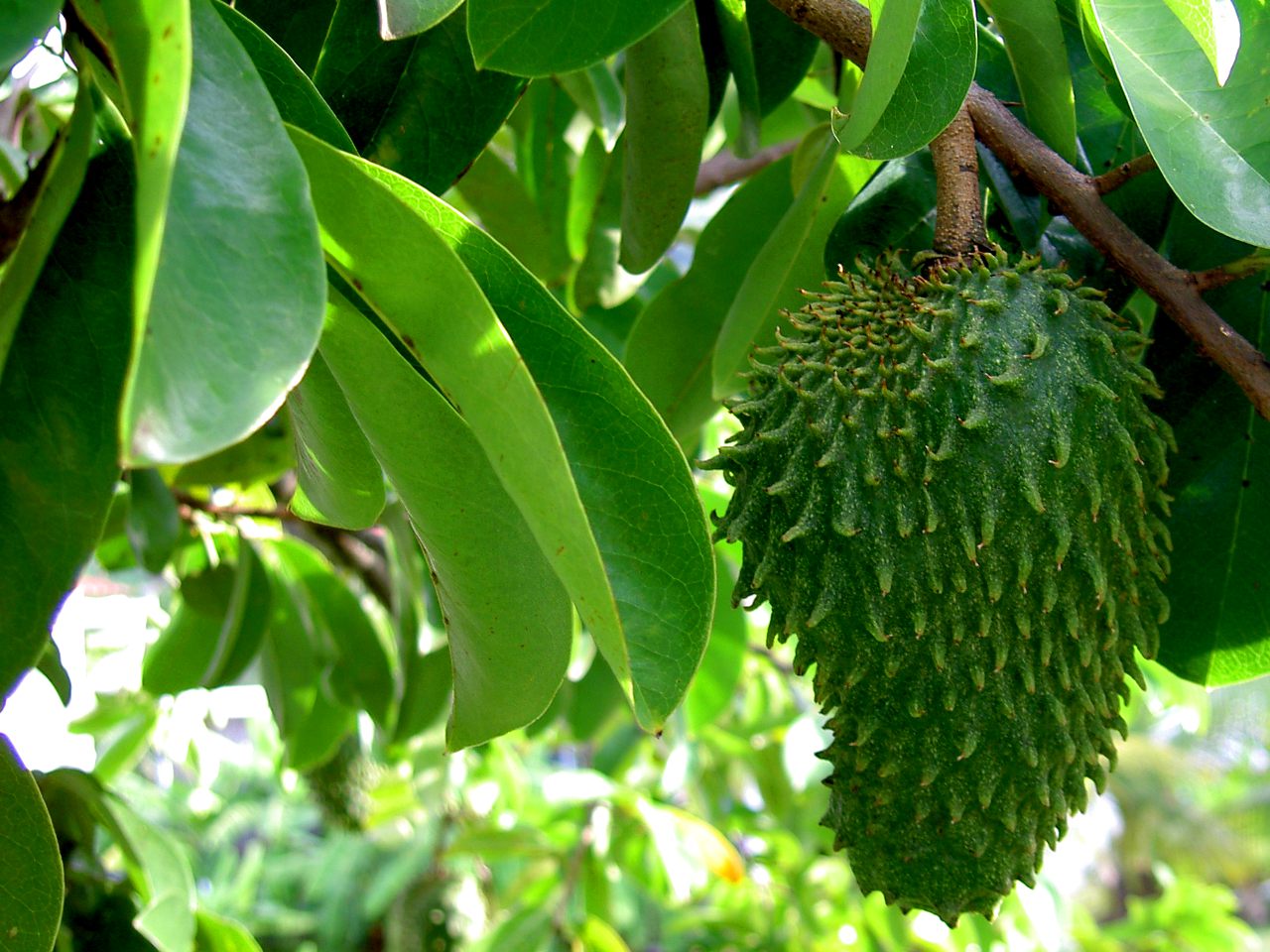The strange-looking tropical fruit graviola is a POWERFUL superfood against cancer
08/20/2018 / By Michelle Simmons

Graviola, also known as soursop, may be a strange-looking tropical fruit, but did you know that it is a powerful superfood that can fight cancer?
Researchers from the Tepic Institute of Technology (ITT) in the state of Nayrit, Mexico were the first ones to look at the effects of graviola on cancer tumor cells. They found that the fruit contains acerogenins, which are substances that fight against cancer. Since then, the ITT researchers and researchers from all over the world have discovered excellent results regarding acetogenins in graviola. (Related: Graviola Shows Promise in Cancer Cures and Arthritis.)
According to a 2016 report published in the journal Pharmaceutica Analytica Acta, the ITT researchers found chemotherapeutic properties in graviola, which can be attributed to the presence of acetogenins and other antioxidants in the fruit. More specifically, they discovered that the acetogenins in graviola fruit are capable of encapsulating cancer tumor cells.
In a report published in 2017 in the journal Annals of the New York Academy of Sciences, researchers from China, Italy, and Macau investigated the seven different varieties of the Annona (Annonaceae) species, which included graviola. In the study, the research team found that all seven varieties of the Annona species are sources of potential antitumor agents. The team wrote in their report that acetogenins found in Annona species are “one of the most promising classes of natural products” due to their antitumor potential.
Another joint research project from France and Portugal also confirmed the potential cancer-fighting abilities of acetogenin phytonutrients. In the study, researchers examined phytonutrients contained in Laurencia obtusa, a sea vegetable that is found in temperate to tropical ocean waters around the world, usually fairly close to shore. Based on their findings, 23 different potential compounds in the sea vegetable, including acetogenins, that could have an effect on cancer cells. In particular, the study looked at the effect of these phytonutrients on human leukemia cell lines.
In addition, researchers at the University of Mississippi found similar results when they assessed the acetogenins in graviola and its close cousin, paw paw. They also found that one way these natural antioxidants reduce and inhibit the spread of cancer tumors is by preventing the secretion of vascular endothelial growth factor (VEGF) and suppressing anaerobic cancer cell growth.
Other health benefits of graviola
In addition to its anti-cancer properties, graviola has been known to possess antivirus and pain relieving properties. It has also been used as a dietary supplement for treating many conditions in tropical areas of Central and South America. The following are some of the potential health benefits of graviola:
- Graviola contains antioxidant properties – Graviola extract has been found to contain various compounds with antioxidant properties, including tannins, saponins, phytosterols, flavonoids, and anthraquinones.
- Graviola contains anti-inflammatory properties – A study on animals found that graviola possesses anti-inflammatory properties that may ease pain, supporting the use of graviola in folk medicine as a remedy for pain and inflammatory conditions.
- Graviola may enhance glucose control – Research on diabetic mice suggested that graviola may help lower blood sugar in diabetic people as it significantly lowered blood sugar levels in the animals.
- Graviola may help control blood pressure – In folk medicine, graviola is often used to reduce blood pressure. In a 2012 study on mice, it was revealed that graviola helps lower blood pressure without increasing heart rate.
- Graviola may prevent ulcers – Graviola exhibited antiulcer activities in a 2014 study on mice. It protected the mucous lining of the stomach and prevented free radical damage to the gastrointestinal tract.
Read more news stories and studies on other powerful superfoods like graviola by going to Superfoods.news.
Sources include:
Submit a correction >>
Tagged Under:
This article may contain statements that reflect the opinion of the author
RECENT NEWS & ARTICLES
COPYRIGHT © 2017 SUPER FOODS NEWS





















